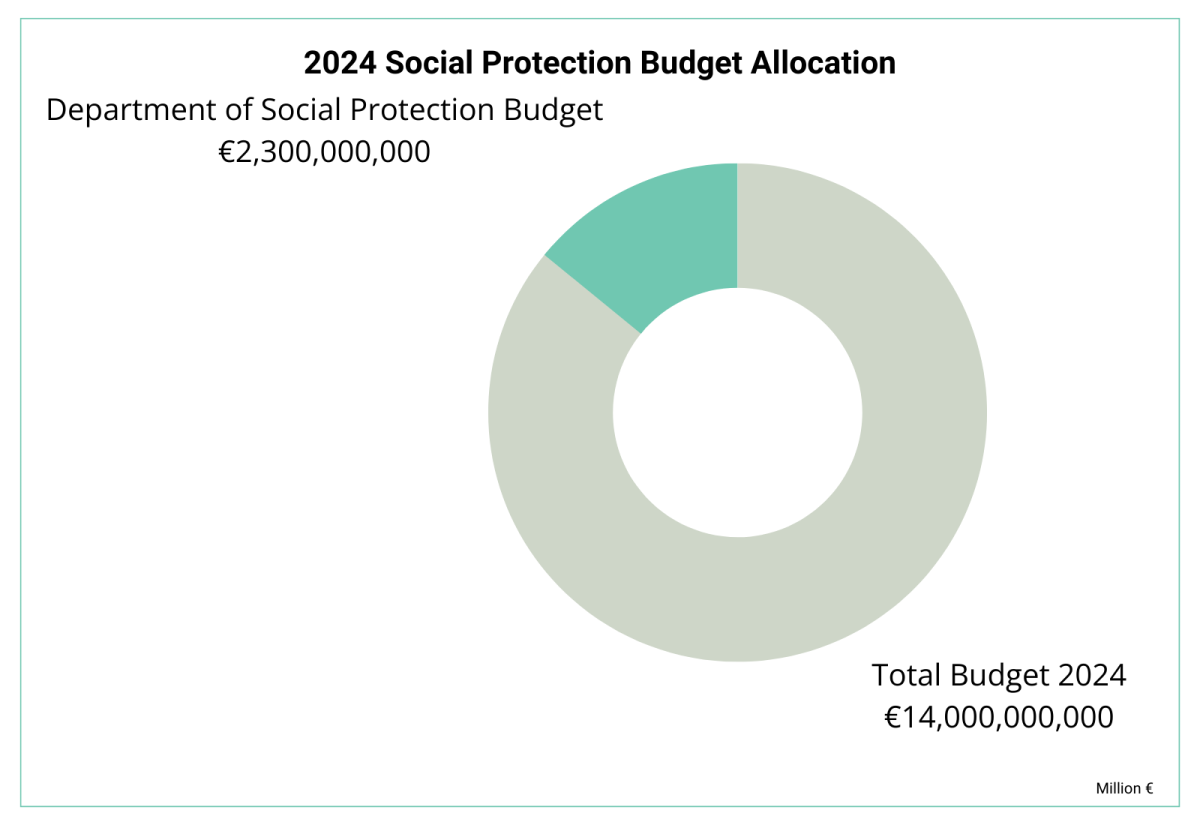RECOMMENDATION
Develop specialist mental health support within community care
Designated mental health inpatient beds and specialised community teams for areas such as ADHD, autism, eating disorders, and pregnant and postnatal women need to be established nationally. This issue is particularly acute for young adults transferring from extensive children and adolescents’ mental health services to adult services.
SOCIAL SERVICES POLICY AND LEGAL FRAMEWORK
In line with principles in the Irish Constitution Bunreacht na hÉireann various Acts related to social services have been enacted to foster equality and cater to the needs of disadvantaged individuals. Services provided by the state, for instance, via the Health Service Executive (HSE) and local authorities, are also covered by the Acts.
For instance, the Assisted Decision-Making (Capacity) Act 2015 (ADM) recognises the legal rights of all persons regardless of their disability, and the Department of Health Statement of Strategy 2021-2023 examines Age Friendly Ireland in terms of the following:
- Long-term Residential Care
- Enhancing Dementia Care
- End of Life Care
- Home and Community Care Support
- Delivering Choice
- Commission on Care
More specifically, Age Friendly Ireland supports cities and counties to be more inclusive of older persons by addressing their expressed concerns and interests under the eight pillars of the World Health Organization’s global programme.
A one-stop approach to Health - Sláintecare - is to be launched soon. Sláintecare aims to achieve a universal single-tier health and social care system, which provides equitable access to services based on need.
Main Agencies
In Ireland, social welfare services are predominately delivered by the Department of Social Protection, the Department of Health, and the Department of Children, Equality, Disability, Integration and Youth.
SOCIAL SERVICES INVESTMENT
From the total national 2024 budget of €14,000,000,000, the Department of Social Protection budget allocation is €2.300,000,000, or 16.4%.

SOCIAL SERVICES COVERAGE
Long-Term Care
Residential Care
There are 2,242 long-term residential care facilities, including registered disability centres. In 2023, there are over 460 registered nursing homes catering for more than 25,000 residents. The occupancy rates are at or above 90%.
Home Care
Most of the home care supplied in Ireland is delivered by members of two organisations, Home and Community Care Ireland (HCCI) and the Community Care Network (NCCN).
62% of home care is delivered by non-Health Service Executive (HSE) providers, with only 38% of home support services delivered directly by the HSE, amounting to over €400 million in 2021 being paid to non-HSE providers of home care.
As of July 2022, there are more than 5,000 older people on waiting lists for home care assistants, an increase of more than 10% since January that year. Almost 10% of older people approved for home support have no carer.
The average number of hours of help per beneficiary increased from 193 hours per year in 2012 to 219 hours in 2017.
The average person in receipt of home care receives approximately 8 hours of care a week.
Support Services for People with Disabilities
There are currently circa 8,400 persons with disabilities living in 1,300 disability centres registered with the Health Information and Quality Authority, which is the independent authority that safeguards health and social care standards.
In 2016, 112,904 persons with disabilities, representing 19.3 per cent of the total population with disabilities, lived alone in private households, just over 6 per cent since 2011.
Technology and Telecare Services
In 2021, more than one in five people in Ireland had experienced telecare. Within the Health Service Executive, eHealth is the division responsible for the delivery of technology to support e-healthcare.
According to 2022 data, the at-risk poverty rate was 13.1%, a 1.5 percentage point increase on the 2021 estimate of 11.6%. Basic Supplementary Welfare Allowance is a primary weekly allowance paid to people who do not have enough income to meet their needs and those of their families. The maximum personal rate is €218 a week. The benefit of work estimator shows how starting work or increasing hours in work could affect their payment.
In addition, there is the universal payment of child benefit (child benefit of €140 awarded to all children per month regardless of their or their families means).
Child Protection Services
According to 2022 data, there were 5,836 children in the care of the State. Of these, 89% (5,219) were in foster care, 7.4% (429) were in residential care, and the remaining 3.2% (188) were in other care placements such as supported lodgings, disability centres, or detention centres.
Of the 5,219 children in foster care, 61.9% (3,230) were in general foster care managed by Tusla (the national child and family agency), 28.8% (1,504) were in relative foster care, while the remaining 9.3% (485) were placed in non-statutory fostering agencies (private).
There are currently 3,985 foster carers in Ireland: 2,378 general foster carers, 1,057 relative foster carers and 550 private foster carers.
Services for Female Victims of Violence
In 2022, the female population of Ireland was 2.57 million people. According to 2022 data, Ireland has 144 refuge places available for women and children.
Annually the 39 frontline services in Ireland, such as Aoibhneas, Women’s Aid, Ruhama and Crime Victims Helplinev, respond to more than 50,000 helpline calls, provide direct support and advocacy to over 11,000 women and 3,500 children, and offer safe and secure temporary accommodation to over 1,500 women and 3,000 children.
For example, in 2018, 53,627 helpline calls were answered by domestic violence services and 10,782 women and 2,572 children were accommodated and/or received support from a domestic violence service.
Services for Homeless People
In 2023 the total number of adults accessing local authority-managed emergency accommodation is 8,369, of which 5,242 (64%) are men and 3,027 (36%) are women.
There is a housing allowance called the Housing Assistance Payment (HAP) Scheme, which is a form of social housing support provided by all Local Authorities.

